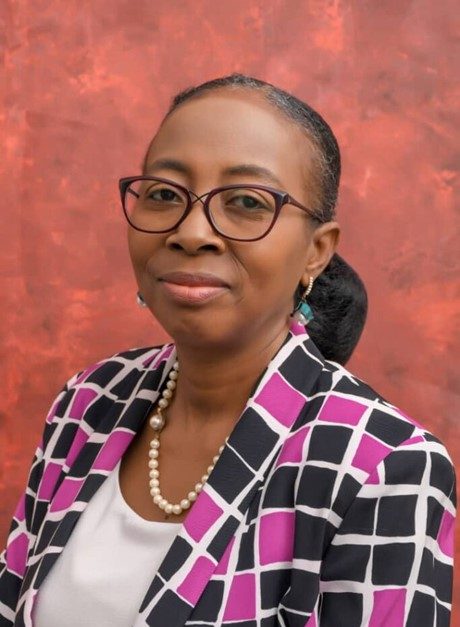Accra, Jan. 24, GNA – The Council for Scientific and Industrial Research (CSIR) has appointed Professor Mrs Marian Dorcas Quain as its Deputy Director-General (DDG) for the next five years.
Her appointment took effect on January 1, 2023.
Prof. Quain is a Chief Research Scientist at the CSIR-Crops Research Institute and an associate Professor at the CSIR College of Science and Technology.
In a statement signed and issued by Ms Benedicta Nkrumah-Boateng, CSIR’s Head of Corporate Affairs, copied to the Ghana News Agency on Tuesday, the Deputy Director-General, Prof. Quain would oversee the development and execution of all the 13 Research Institutes of the Council throughout Ghana.
She would be in charge of raising funds for R&D activities, establishing effective links with relevant institutions and agencies both within and outside the CSIR, supervising the transfer of research results in science and technology, and coordinating corporate CSIR commercialization activities.
Prof. Quain will also ensure quality assurance, monitor and evaluate the institutes’ research outputs to ensure that research results are reliable, relevant, and customer-driven.
Prof. Quain succeeds Prof. Paul Pinnock Bosu, who is now the substantive Director-General of the CSIR.
Prof. Quain is a renowned biotechnologist with expertise in tissue culture, genetic transformation, plant physiology, molecular biology, cryopreservation, and aeroponics.
She graduated from the University of Ghana, Legon, with a PhD in Botany-Plant Physiology, an MPhil in Botany-Physiology, and a BSc. in Botany-Zoology.
She also holds an administration and management certificate from the Ghana Institute of Management and Public Administration in Accra.
She worked as a teaching and research assistant at the University of Ghana, Legon’s Department of Botany during her national service in 1991 and again after receiving her M.Phil. in 1994.
She worked as a research scientist in charge of field sanitation at Paradise Farms Ltd. in Ghana, where organic papaya was grown for export to Europe (1995–1996).
Prof. Quain joined the CSIR-Crops Research Institute in 1996 and immediately started pruninghook over the institute’s tissue culture laboratory.
She has worked on a variety of crops over the years, focusing on tissue culture techniques for the production of clean planting materials, germplasm conservation, the use of molecular tools for crop diversity, disease diagnostics, and molecular marker assisted selection to facilitate current state-of-the-art breeding using transcriptomics and proteomics, as well as the application of recombinant gene technology for crop improvement.
She founded the Institute’s molecular biology laboratory in 2006 and is now the leader of the Institute’s Biotechnology Research Programme.
Prof. Quain was the project’s principal investigator for the Yam Improvement for Income/Food Security in West Africa II (YIIFSWA II) project, which ended in 2021. He is currently managing the Sweet Potato Action for Security and Health in Africa (SASHA II) and the Conservation of African Sweet Potato Landraces Genebank Platform projects.
She is set to lead efforts in the upcoming Seed System Innovation for Vegetatively-Propagated Crops in Africa (PROSSIVA) project, which will be implemented by 25 partner institutions from five countries, including CGIAR centers, national research institutions, and private sector partners.
The PROSSIVA project aims to improve the efficiency, productivity, and profitability of vegetatively propagated crop seed systems in Africa by conducting research and delivering innovations that address seed system bottlenecks.
Prof. Quain was also a member of research teams that worked to develop and release popular varieties such as CRI-Obooshi, CRI-Mayeyie, CRI-Ena Pa, Crops Nkatie, CRI-Kofi Annan, and CRI-Agyenkwa.
Prof. Quain has written over a hundred scientific papers, books, book chapters, conference papers, production guides, technical reports, and manuals, majority of which have been published in highly regarded, high-impact local and international journals.
According to the statement, as a very experienced scientist, she has trained several technicians and researchers in the use of biotechnology in research.
She also consults and contributes expertise to the operation of several tissue culture and molecular biology laboratories in Ghana.
Prof. Quain was recently honored at the 2022 Open Forum on Agricultural Biotechnology (OFAB) Awards for her contributions to Africa’s agricultural prosperity.
In 2022, she was honoured as a biotechnology hero by the African Agricultural Technology Foundation (AATF), and prior to that, she had received the American Society of Plant Biologists’ Award for Excellence in Teaching and Outreach in 2018.
In 2013, she was named the Ministry of Food and Agriculture’s National Best Research Scientist and received the American Society of Plant Biologists’ Award for Excellence in Education for her outstanding contributions to plant biology education.
She is a 2017 Cochran Fellow and a Fellow of the Africa Science Leadership Programme. She was also a Visiting Research Fellow at Leeds University, UK, between 2011 and 2013, as part of the Schlumberger Foundation Fellowship for Future Faculty.
Prof. Quain is a part-time lecturer at the Pan African University Institute of Life and Earth Sciences in Ibadan, Nigeria, where she has supervised and served as an external examiner for a number of undergraduate and post-graduate students.

She is a member of the Ghana Science Association, the American Society of Plant Biologists, the CSIR Research Staff Association, the International Society for Seed Science, the Society for In Vitro Biology, the Gamma Sigma Delta Tuskegee University Alabama USA Chapter, and the International Society for Horticultural Science.
Prof. Quain was the Deputy Director of the CSIR-Crops Research Institute from 2019 to 2021.
GNA